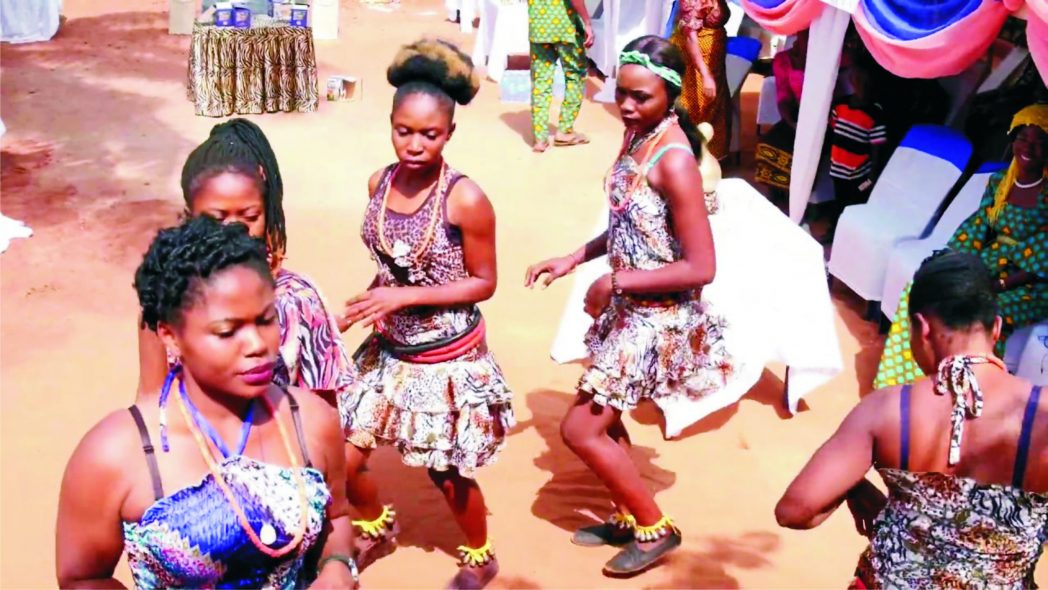Opinion
Hope Of Inheritance For Igbo Females?

Following last week’s Supreme Court ruling which upheld the right of a female child to inherit properties of her father; a friend called me on the phone and jokingly said “Nne, congratulations! You should be happy now knowing that, at your father’s death, you can inherit some of his properties”. Of course, he was being sarcastic because he was aware that my dad passed on many decades ago and didn’t even have many properties to be fought over by his many children.
But the truth is that the judgment is one that should cheer many females of Igbo extraction. We know that many Igbo women are working hard to make their own money, many of them are comfortable in their husbands’ homes and may not give a damn about their fathers’ plots of land or other belongings. But it is also good to know that there will be no barriers or hindrances for any woman who decides to be part of such inheritance.
This Stone Age custom had long created an air of male supremacy and superiority over the female. It is discriminatory and unjust and it has to stop. I have read some Igbo men argue that it is only the village properties, mostly land, that cannot be inherited by the female children for the reason of preserving the family lineage. How can this be true? For instance, in the case at land, Ms. Gladys Ada Ukeje had sued Mrs. Lois Chituru Ukeje (wife of the late Lazarus Ogbonna Ukeje) and their son, Enyinnaya Lazarus Ukeje, before the Lagos High Court, claiming to be one of the deceased’s children and sought to be included among those to administer their deceased father’s estate. The trial court found that she was a daughter to the deceased and that she was qualified to benefit from the estate of their father who died intestate in Lagos in 1981.
Cases abound where married women, upon the death of their husband, are disinherited because they did not have a male child for the late husband. Recall Nweke v Anekwe (2014), where a widow, Mrs. Maria Nweke, had instituted a case against her late husband’s relatives over their ploy to seize a parcel of land belonging to her late husband. Just like the Ukejes’ case, the Supreme Court held that Nigerian customs which disinherit women are repugnant to natural justice, equity and good conscience and should therefore not be allowed to stand. A former classmate of mine, after the demise of her husband, was thrown out of her house with her daughter by her late husband’s family. They took over every property of the late man including his plots of land, buildings and vehicles, claiming that the woman and her female child had no right over those properties as females. The case is still in court, I believe. The situation is even worse when the two parents are dead. The female children are treated like outcasts.
Customs and traditions like this is the reason why some couples that have no male children in Igbo land feel unfulfilled and incomplete even when they are blessed with many female children. Some of them will go to any length to have a male child so that “their lineage will not go extinct”. Many women have lost their lives in the desperation to have a male child for their husbands who continually threaten that they would marry another wife to bear a successor for them if the first wives fail to do so.
In the words of the leader of Alaigbo Development Foundation (ADF), Prof Uzodinma Nwala, “in today’s world, daughters have proved their mettle in bringing sustainability, honour and dignity to their families. Some of them have played the role of bread-winners for their father’s houses. So, it would have amounted to great injustice to continue to deny them the right of inheritance. They should be entitled to a fair share of their family wealth whether married or single.” A similar admonition was given by the President-General of Ndigbo United Forum (NUF), Chief Godson Ezenagu. He said “Granting them access to their biological father’s properties is a natural thing. Sometimes, customs handed over from generation to generation can be awkward and can be discontinued… All animals are equal and at the same time, all children are equal. We shouldn’t because customs deny the female child her natural right.”
Globally, everything is changing. There is increased awareness and clamor for gender parity, gender equality and all the likes and one thinks that it is high time we followed suit and build a more inclusive society not only in Igboland but in Nigeria in general. It will only show that we are responding to modernity. Societies are not static; they change. Any custom, law or tradition that reduces a female child to slavish status in her fatherland is definitely not in tandem with modern realities and must give way.
Therefore, as the highest court in the country has again ruled that ”the Igbo customary law, which disentitles a female child from partaking in the sharing of her deceased father’s estate is breach of Section 42(1) and (2) of the Constitution, a fundamental rights provision guaranteed to every Nigerian. “The said discriminatory customary law is void as it conflicts with Section 42(1) and (2) of the Constitution ‘’, we hope the traditional rulers and other leaders of our communities will do everything possible to see to the implementation of this ruling. Expectedly, the new development will cause some turbulence in the land but with joint effort of the traditional rulers, state lawmakers, town unions, age grades and other stakeholders in properly educating and sensitizing our people on the latest development and enacting laws to back it up, if necessary, the storm will be over in no time and our society will certainly be the better for it.
Most importantly, it is high time our people, both male and female, imbibed the practice of Will writing. The importance of this legal document cannot be overemphasised yet many don’t do it. Some avoid the subject like plague and accuse a spouse who suggests it of wanting to kill him. Let us ponder on these words by Henrietta Newton Martin, “A will can save one’s family from being put into a quagmired pit of legal conundrum, in case of death (which may even be untimely).”
Calista Ezeaku
Opinion
Why Reduce Cut-Off Mark for C.O.E ?
Opinion
Welcome! Worthy Future For R/S
Opinion
Restoring Order, Delivering Good Governance
The political atmosphere in Rivers State has been anything but calm in 2025. Yet, a rare moment of unity was witnessed on Saturday, June 28, when Governor Siminalayi Fubara and Minister of the Federal Capital Territory, Chief Nyesom Wike, appeared side by side at the funeral of Elder Temple Omezurike Onuoha, Wike’s late uncle. What could have passed for a routine condolence visit evolved into a significant political statement—a symbolic show of reconciliation in a state bruised by deep political strife.
The funeral, attended by dignitaries from across the nation, was more than a moment of shared grief. It became the public reflection of a private peace accord reached earlier at the Presidential Villa in Abuja. There, President Bola Ahmed Tinubu brought together Governor Fubara, Minister Wike, the suspended Speaker of the Rivers State House of Assembly, Martin Amaewhule, and other lawmakers to chart a new path forward.
For Rivers people, that truce is a beacon of hope. But they are not content with photo opportunities and promises. What they demand now is the immediate lifting of the state of emergency declared in March 2025, and the unconditional reinstatement of Governor Fubara, Deputy Governor Dr. Ngozi Odu, and all suspended lawmakers. They insist on the restoration of their democratic mandate.
President Tinubu’s decision to suspend the entire structure of Rivers State’s elected leadership and appoint a sole administrator was a drastic response to a deepening political crisis. While it may have prevented a complete breakdown in governance, it also robbed the people of their voice. That silence must now end.
The administrator, retired naval chief Ibok-Ette Ibas, has managed a caretaker role. But Rivers State cannot thrive under unelected stewardship. Democracy must return—not partially, not symbolically, but fully. President Tinubu has to ensure that the people’s will, expressed through the ballot, is restored in word and deed.
Governor Fubara, who will complete his six-month suspension by September, was elected to serve the people of Rivers, not to be sidelined by political intrigues. His return should not be ceremonial. It should come with the full powers and authority vested in him by the constitution and the mandate of Rivers citizens.
The people’s frustration is understandable. At the heart of the political crisis was a power tussle between loyalists of Fubara and those of Wike. Institutions, particularly the State House of Assembly, became battlegrounds. Attempts were made to impeach Fubara. The situation deteriorated into a full-blown crisis, and governance was nearly brought to its knees.
But the tide must now turn. With the Senate’s approval of a record ?1.485 trillion budget for Rivers State for 2025, a new opportunity has emerged. This budget is not just a fiscal document—it is a blueprint for transformation, allocating ?1.077 trillion for capital projects alone. Yet, without the governor’s reinstatement, its execution remains in doubt.
It is Governor Fubara, and only him, who possesses the people’s mandate to execute this ambitious budget. It is time for him to return to duty with vigor, responsibility, and a renewed sense of urgency. The people expect delivery—on roads, hospitals, schools, and job creation.
Rivers civil servants, recovering from neglect and under appreciation, should also continue to be a top priority. Fubara should continue to ensure timely payment of salaries, address pension issues, and create a more effective, motivated public workforce. This is how governance becomes real in people’s lives.
The “Rivers First” mantra with which Fubara campaigned is now being tested. That slogan should become policy. It must inform every appointment, every contract, every budget decision, and every reform. It must reflect the needs and aspirations of the ordinary Rivers person—not political patrons or vested interests.
Beyond infrastructure and administration, political healing is essential. Governor Fubara and Minister Wike must go beyond temporary peace. They should actively unite their camps and followers to form one strong political family. The future of Rivers cannot be built on division.
Political appointments, both at the Federal and State levels, must reflect a spirit of fairness, tolerance, and inclusivity. The days of political vendettas and exclusive lists must end. Every ethnic group, every gender, and every generation must feel included in the new Rivers project.
Rivers is too diverse to be governed by one faction. Lasting peace can only be built on concessions, maturity, and equity. The people are watching to see if the peace deal will lead to deeper understanding or simply paper over cracks in an already fragile political arrangement.
Wike, now a national figure as Minister of the FCT, has a responsibility to rise above the local fray and support the development of Rivers State. His influence should bring federal attention and investment to the state, not political interference or division.
Likewise, Fubara should lead with restraint, humility, and a focus on service delivery. His return should not be marked by revenge or political purges but by inclusive leadership that welcomes even former adversaries into the process of rebuilding the state.
“The people are no longer interested in power struggles. They want light in their streets, drugs in their hospitals, teachers in their classrooms, and jobs for their children. The politics of ego and entitlement have to give way to governance with purpose.
The appearance of both leaders at the funeral was a glimpse of what unity could look like. That moment should now evolve into a movement-one that prioritizes Rivers State over every personal ambition. Let it be the beginning of true reconciliation and progress.
As September draws near, the Federal government should act decisively to end the state of emergency and reinstate all suspended officials. Rivers State must return to constitutional order and normal democratic processes. This is the minimum requirement of good governance.
The crisis in Rivers has dragged on for too long. The truce is a step forward, but much more is needed. Reinstating Governor Fubara, implementing the ?1.485 trillion budget, and uniting political factions are now the urgent tasks ahead. Rivers people have suffered enough. It is time to restore leadership, rebuild trust, and finally put Rivers first.
By: Amieyeofori Ibim
Amieyeofori Ibim is former Editor of The Tide Newspapers, political analyst and public affairs commentator
-
Politics22 hours ago
Atiku’s Exit No Problem To PDP – Makinde
-

 News19 hours ago
News19 hours agoShettima, Atiku, Obi Attend Buhari’s Fidau Prayer In Daura
-

 News21 hours ago
News21 hours agoJAMB Uncovers 9,469 Fake Admissions In 20 Tertiary Institutions
-

 News21 hours ago
News21 hours agoNAF Disowns Recruitment Adverts, Says It’s Fake
-
Rivers22 hours ago
Okrika Administrator Seeks To Connect Okujagu Ama To National Grid … Donates 30 Life Jackets To Okujagu Ama Boat Drivers
-
News19 hours ago
Rivers Chief Judge Frees 21 Awaiting Trial Inmates
-
Politics21 hours ago
Natasha’s Counsel Writes Senate Over Court Judgment
-
Nation20 hours ago
NIPR Practitioners Urge To Go Beyond Traditional Media Relations To Strategic Leadership Functions

